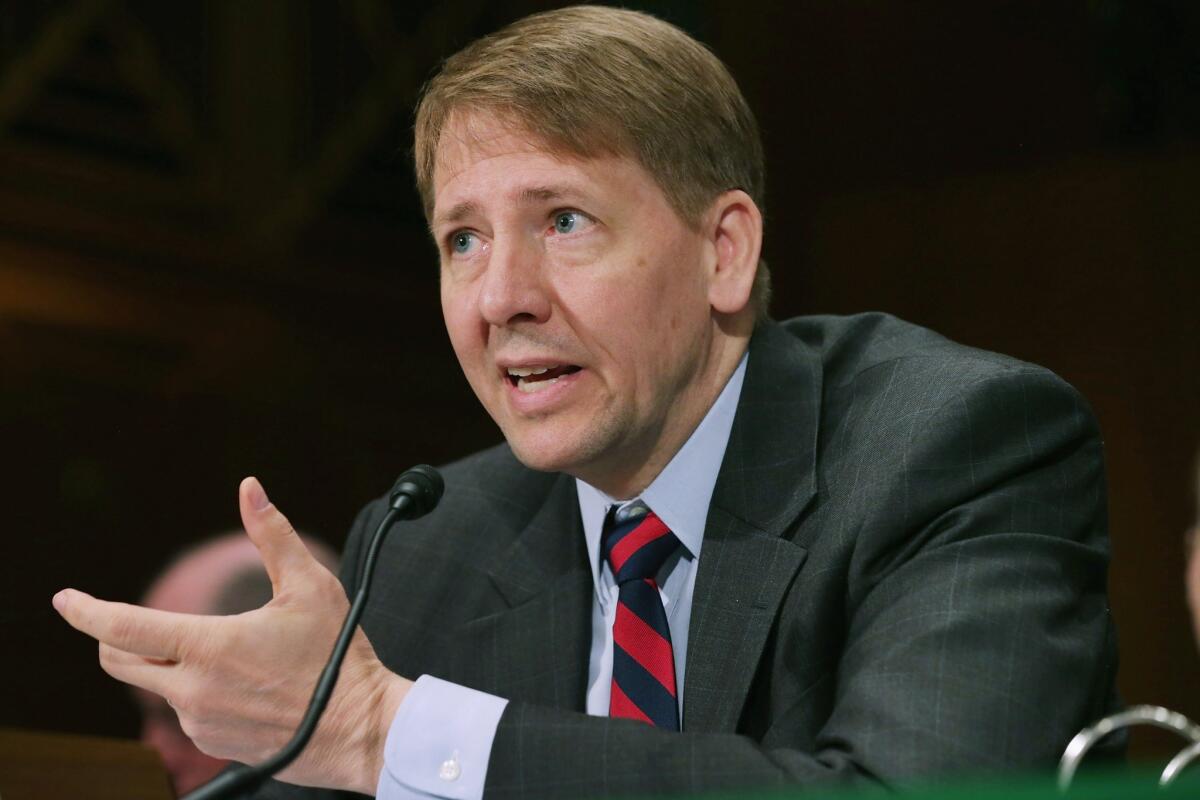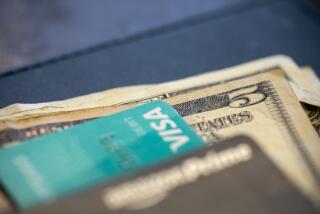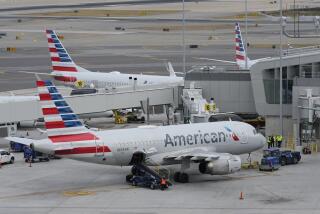Banks rake in overdraft fees on small debit card purchases, CFPB finds

The majority of debit card overdrafts are caused by small purchases, resulting in many consumers paying more for overdraft protection than they spent on the transactions that triggered it, according to a study released Thursday by the Consumer Financial Protection Bureau.
The findings show bank overdraft coverage, which has come under tougher regulatory oversight in recent years, continues to be a problem for many consumers and might require additional regulation, bureau director Richard Cordray said.
“Overdraft fees should not be ‘gotchas’ when people use their debit cards,” he said. “We need to determine whether current overdraft practices are causing the kind of consumer harm that the federal consumer protection laws are designed to prevent.”
In an analysis of data from large banks, the bureau found that the majority of debit card transactions that led to overdraft fees were for purchases of $24 or less.
And the majority of overdrafts were resolved within three days, with the consumer depositing enough money into the account to return it to a positive balance.
“The result is that some consumers are essentially paying $34 -- which is the typical overdraft fee -- to have the bank spot them less than $24 for just a few days,” Cordray said.
“If a consumer were to get a loan on those terms, that would equate to an annual percentage rate of over 17,000%,” he said.
The bureau focused on debit cards because their use has surged in recent years. Consumers now pay with debit cards an average of 17 times a month -- three times more than they do with paper checks or online bill payment services.
Amid concerns about rising overdraft fees, federal regulators enacted new rules in 2010 requiring banks to let customers affirimatively choose, or opt in for, overdraft protection for debit card and automated teller machine transactions.
Previously, many banks automatically enrolled customers in overdraft protection plans.
The regulation does not apply to checks or automated payments, which banks can choose not to cover if customers overdraw their accounts. Customers then are charged a fee for having insufficient funds.
About 14.3% of checking account holders in the bureau study opted for overdraft protection.
Those customers ended up paying significantly more for their checking accounts than those who do not get the protection, the study found.
On average, customers who opted-in to overdraft protection paid about $260 a year in premiums to cover overdraft and insufficient funds fees.
Customers who did not choose the protection paid about $35 in annual fees.
Cordray said nothing in the report suggests that banks should not be allowed to offer overdraft coverage.
Some banks have taken steps to reduce their fees, such as not charging customers for overdrafts of less than $5 or capping the number of fees assessed in a single day.
Many large banks have stopped processing larger debit card payments before smaller ones -- a criticized maneuver than can trigger more overdraft fees -- and now process them in the order they are received.
But bureau officials are looking into whether more regulations are needed. They are considering whether consumers fully understand the programs before they choose to enroll and whether banks should be forced to process payments in the order they are received.
A bureau study last year questioned whether consumers were able to anticipate and avoid overdraft fees. The results from the new study “compound our concerns,” Cordray said.
For breaking economic news, follow @JimPuzzanghera on Twitter







